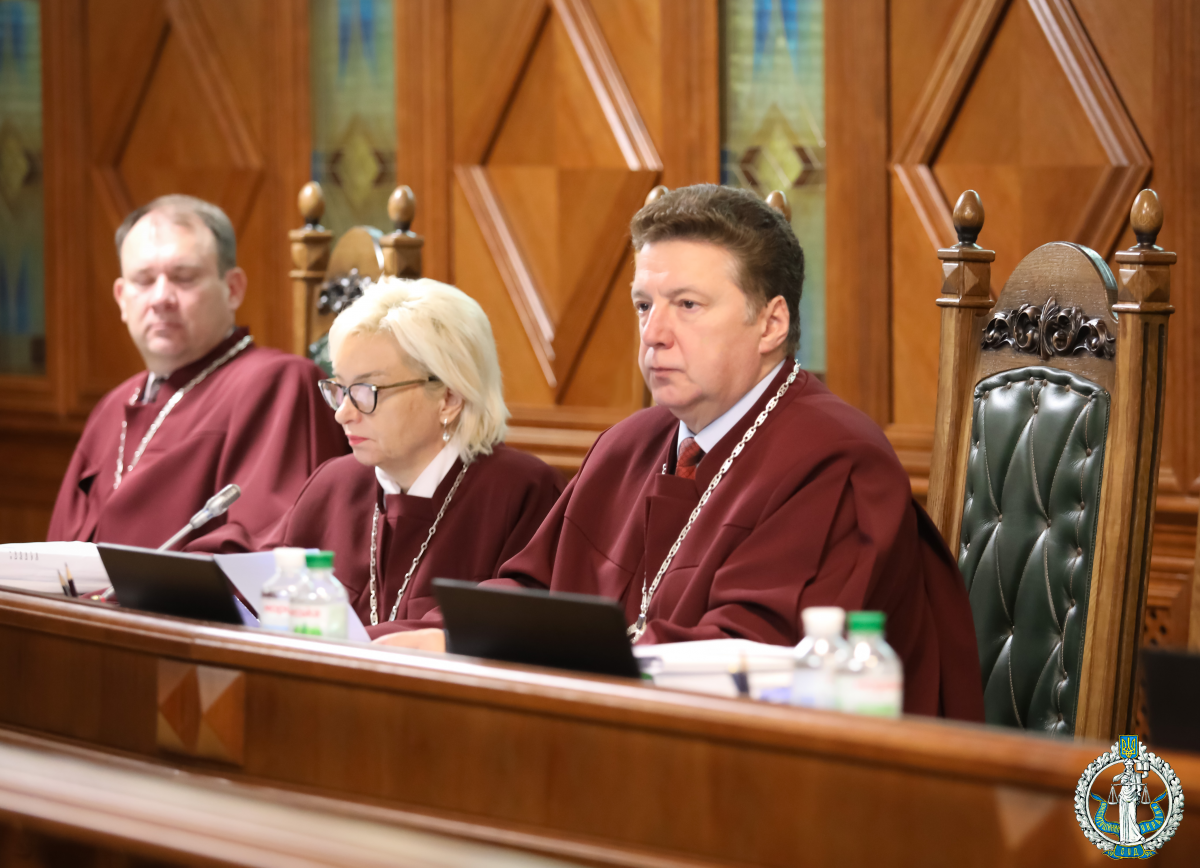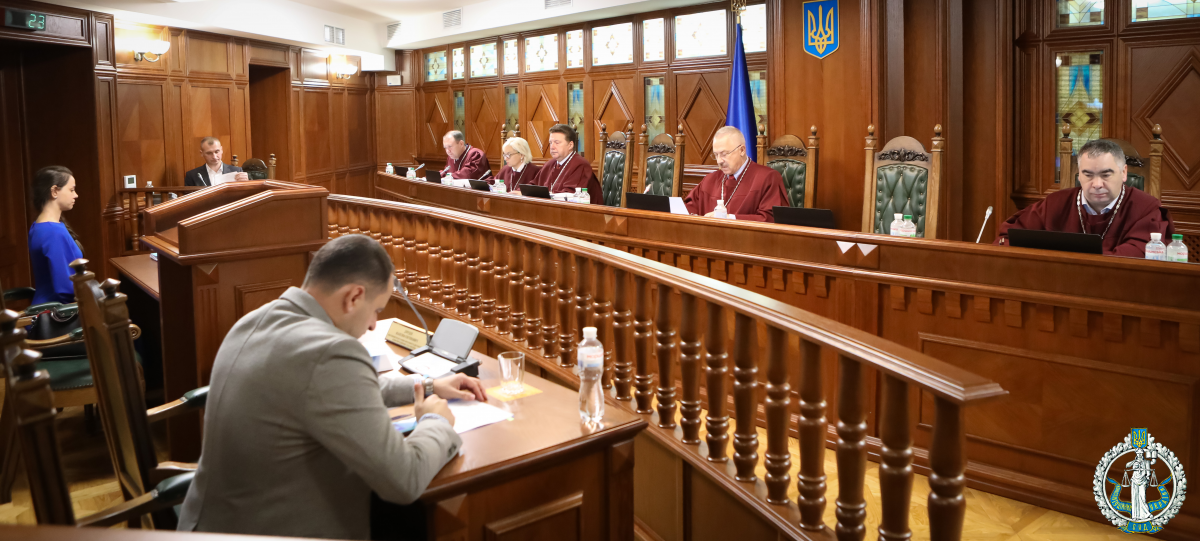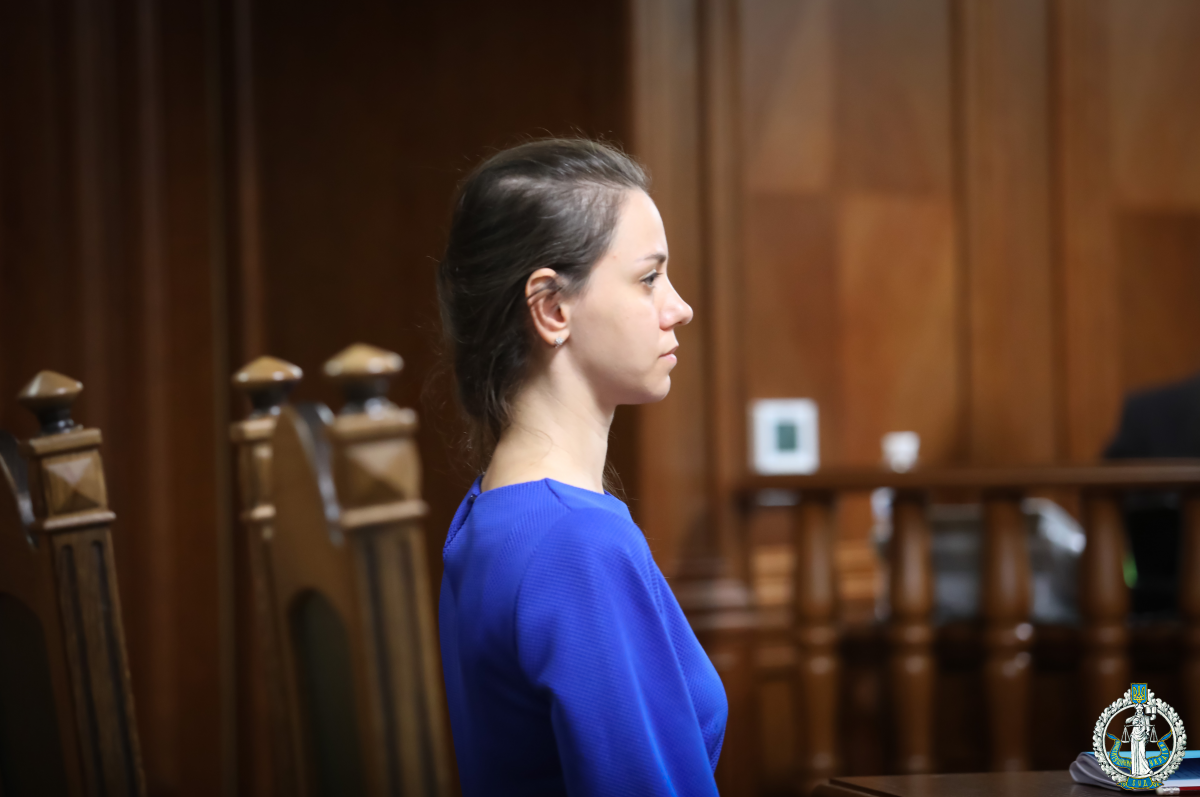On November 1, 2023, in the public part of the plenary session, the Second Senate commenced deliberation of the case upon the constitutional complaint of Oksana Tymoshenkova in the form of written proceedings.
During the plenary session, the judge-rapporteur in the case, Viktor Gorodovenko, informed that the applicant appealed to the Constitutional Court of Ukraine to verify the conformity of an individual provision of Article 361.5.1 of the Code of Administrative Procedure of Ukraine (hereinafter referred to as “the Code”) with the Constitution of Ukraine.
This provision defines that the basis for reviewing court decisions in connection with exceptional circumstances is “the unconstitutionality (constitutionality) of a law, other legal act or their individual provision, applied (not applied) by the court when deciding the case, established by the Constitutional Court of Ukraine, if the court's decision has not yet been executed”. The applicant requests to verify the constitutionality of Article 361.5.1 of the Code in the part of an individual provision “if the court's decision has not yet been executed”.
From the content of the constitutional complaint and the materials attached to it, it can be seen that Oksana Tymoshenkova previously appealed to the Constitutional Court of Ukraine with a constitutional complaint regarding the constitutionality of paragraph 6, an individual provision of paragraph 19.6 of Section II “Final and Transitional Provisions” of the Law of Ukraine “On Amending some legislative acts of Ukraine regarding priority measures for the reform of prosecution offices” No. 113-IX dated September 19, 2019 (hereinafter referred to as “Law No. 113”).
The judge-rapporteur informed that the board of judges of the First Senate initiated constitutional proceedings in the case upon this constitutional complaint. Subsequently, the First Senate of the Court closed the constitutional proceedings in this case in the part regarding compliance of paragraph 6 of Section II “Final and Transitional Provisions” of Law No. 113 with the Constitution of Ukraine based on the decision of the Constitutional Court of Ukraine regarding the same subject of the constitutional complaint, namely: Decision No. 1-r(ІІ)/2023 dated March 1, 2023, whereby paragraph 6 of Section II “Final and Transitional Provisions” of Law No. 113 was declared unconstitutional.
On the basis of this decision, the applicant appealed to the Sixth Administrative Court of Appeal with an application for a review under exceptional circumstances of the resolution of this court dated December 8, 2021, by which she was refused to satisfy the lawsuit regarding recognition as illegal and annulment of the order of the General Prosecutor's Office of Ukraine on her dismissal from the position, reinstatement as a prosecutor and recovery of the average salary for the period of forced absenteeism.
The Sixth Administrative Court of Appeal, by a ruling dated June 21, 2023, rejected her appeal for review of the court decision under exceptional circumstances and upheld the resolution of December 8, 2021.
The board of judges of the Administrative Court of Cassation as part of the Supreme Court, by a ruling dated August 29, 2023, refused to initiate cassation proceedings on her cassation appeal, referring to the position of the joint chamber of the Administrative Court of Cassation as part of the Supreme Court, noted that “the court decision on the refusal of satisfaction claims does not provide for the possibility of its enforcement and therefore cannot be considered “unexecuted” within the meaning of Article 361.5.1 of the Civil Code of Ukraine, which means that it cannot be reviewed under exceptional circumstances on the specified normative basis <...> the decision of the Constitutional Court of Ukraine does not change the legal regulation of disputed legal relations and does not prove the fact that the court made a mistake in resolving the dispute, because at the time of the emergence of the disputed legal relations and at the time of the decision of the court of first instance, the provisions of the specified norm were effective and subject to application”.
Oksana Tymoshenkova believes that the individual provision of Article 361.5.1 of the Code “contradicts the principle of the rule of law, namely its elements such as legal certainty and legitimate expectations”, since “the combination of the words “if the court's decision has not yet been executed” is an evaluative , its content is not legally defined, which does not ensure the predictability of application” of the specified individual provision of the Code.
She also asserts that Article 361 of the Code “does not establish the criteria by which it is possible to determine whether the decision has been executed or not, and also does not disclose the meaning of the combination of words “if the court decision has not yet been executed”, which enables an ambiguous understanding and, as a result, limitations in the rights of participants in the legal process with the same legal status and blocks the execution of the decisions of the Constitutional Court of Ukraine, nullifying the principle of the binding nature of court decisions”.
In her opinion, the specified phrase, which contains Article 361.5.1 of the Code, “gives the right to review a court decision only to that category of citizens whose court decision has not yet been executed, at the same time depriving those persons, the decision in the case of which has been executed or is such that it does not provide for compulsory execution, which, in turn, indicates the discriminatory nature of the contested legislative provision”.
The applicant believes that the provision of Article 361.5.1 of the Code “in terms of establishing a ban on review under exceptional circumstances of court decisions that are not subject to enforcement (in particular, as a result of the refusal to satisfy the claim) creates procedural discrimination against the participants in court proceedings; limits the right to judicial protection and the filing of a constitutional complaint, as it deprives a party of the rational sense to appeal to the Constitutional Court of Ukraine with a constitutional complaint, and therefore the norms of the Constitution of Ukraine, which provide for such a right, acquire declarative and formal features”.
Substantiating her position regarding the inconsistency of the contested provision of the Code with a number of norms of the Constitution of Ukraine, the applicant, in particular, refers to the decision of the Constitutional Court of Ukraine, the case law of the European Court of Human Rights, the Supreme Court, as well as to court decisions in her case.
The court examined the materials of the case in the public part of the plenary session and proceeded to the in-camera part for a decision.
The subject of the right to a constitutional complaint, Oksana Tymoshenkova, and the Permanent Representative of the Verkhovna Rada of Ukraine at the Constitutional Court of Ukraine, Maksym Dyrdin, attended the public part of the plenary session.
The public part of the plenary session is available on the official website of the Court in the section “Archive of video broadcasts of sessions”.




